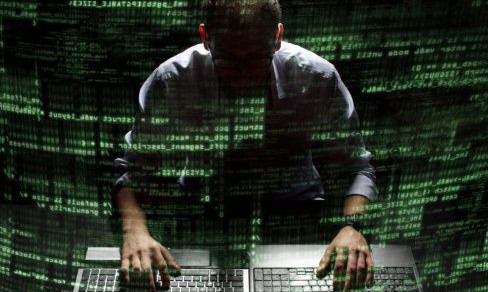
Illegal downloading of music and films can be a “gateway” into cyber crime, a senior police officer has said.
Andy Archibald, deputy director of the National Cyber Crime Unit at the National Crime Agency, identified participation in internet piracy as a possible first step towards more serious online activities.
He said: “If you think about the illegal downloading of music, of videos and DVDs, I think that practice is more common than we might imagine within the youth of today.
“That’s criminality. It’s almost become acceptable. That’s the first stages, I believe, of a gateway into the dark side.”
He also warned that youngsters with strong technical abilities could be targeted by cyber criminals attempting to recruit new members.
“There are many of our young people, and not only young people, who are becoming highly skilled and capable in a digital environment,” he said.
“It’s important that they put those skills to good use and are not tempted to become involved, unwittingly in cyber criminality.
“They are members of forums and are exchanging ideas in a marketplace that criminals are looking (at).
“They are looking for people with technical skills who can compliment their criminal business.
“They are looking to recruit those people. They try to induce and manipulate them.”
Speaking at a conference in London, Mr Archibald described the threat from cyber crime as the biggest threat facing law enforcement agencies.
He said a “sophisticated” and international response was required to address the issue.
Mr Archibald identified infiltrating the so-called “dark web” as a key challenge.
“When I joined policing…you had drug trafficking, organised immigration crime, firearms trafficking, you knew where to go to sell stolen property, you knew where to go to hire a hit man, frankly.
“Actually, we could control that and we managed that by covert policing, overt policing and an infrastructure around it.
“All of those things I’ve just described are now happening in a digital environment in what is loosely termed the dark web.
“On the dark web we have criminals operating there, trading guns, trading drugs.
“That is where the illegal commodities are being traded.”
The officer insisted authorities do not want “mass surveillance”.
The Government is preparing to announce details of new legislation covering the powers of police and intelligence agencies to access communications data.
Mr Archibald said: “Law enforcement does not want mass surveillance.
“Mass surveillance, high volumes of data we have no interest in, causes us problems.
“A narrative has to be developed that reassures the public.
“I think there’s this sense of Big Brother monitoring and we are all nervous around that.
“Law enforcement have had that capability in a traditional policing environment for many years and have managed it in a very responsible way.”

Enjoy the convenience of having The Sunday Post delivered as a digital ePaper straight to your smartphone, tablet or computer.
Subscribe for only £5.49 a month and enjoy all the benefits of the printed paper as a digital replica.
Subscribe